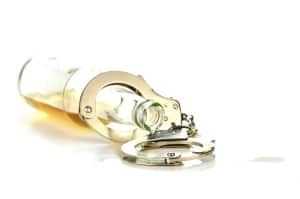 There is a big problem in Wisconsin: drunk drivers. With recent attention on a man who was charged with his eighth OWI violation, it would seem that the traffic citation given to a first-time OWI offender in Wisconsin sends the wrong message. In any other state, a first-time drunk driving offense is a criminal violation, and some states even require an ignition interlock requirement for those convictions. If that same ignition interlock requirement for first-time OWI offenders was the case in Wisconsin, there would be less headlines about an OWI offender with five or more convictions.
There is a big problem in Wisconsin: drunk drivers. With recent attention on a man who was charged with his eighth OWI violation, it would seem that the traffic citation given to a first-time OWI offender in Wisconsin sends the wrong message. In any other state, a first-time drunk driving offense is a criminal violation, and some states even require an ignition interlock requirement for those convictions. If that same ignition interlock requirement for first-time OWI offenders was the case in Wisconsin, there would be less headlines about an OWI offender with five or more convictions.
It is thought that because of issues within the “drinking culture” of Wisconsin there is resistance to changing the law for first-time OWI offenses. Drinking is encouraged in the state, and minors can even drink in public in certain situations. Both candidates for Attorney General in Wisconsin feel that there is no reason to change the OWI law, and many feel that implementing saturation patrols and sobriety checkpoints will be easier and cheaper than changing the OWI laws. Others feel that it is habitual OWI offenders that are the real problem, and the focus (and money) should be spent on rehabilitation and treatment programs for alcohol abuse and addiction.
With drunk driving costing Wisconsin’s taxpayers over a billion dollars each year, and with the worst drunk driving statistics in the country, strengthening Wisconsin’s OWI laws could reduce the financial impact across the state and keep the streets safe. If Wisconsin law treated a first-time OWI as a criminal offense, it could open up the possibility of an ignition interlock requirement for all offenders, reducing the odds of another person racking up OWI offenses. The OWI debate in Wisconsin needs to continue in order to find a solution to the state’s dangerous perspective on drunk driving.

 What BAC Level Will Cause My Ignition Interlock Device to Report a Positive Result?
What BAC Level Will Cause My Ignition Interlock Device to Report a Positive Result?